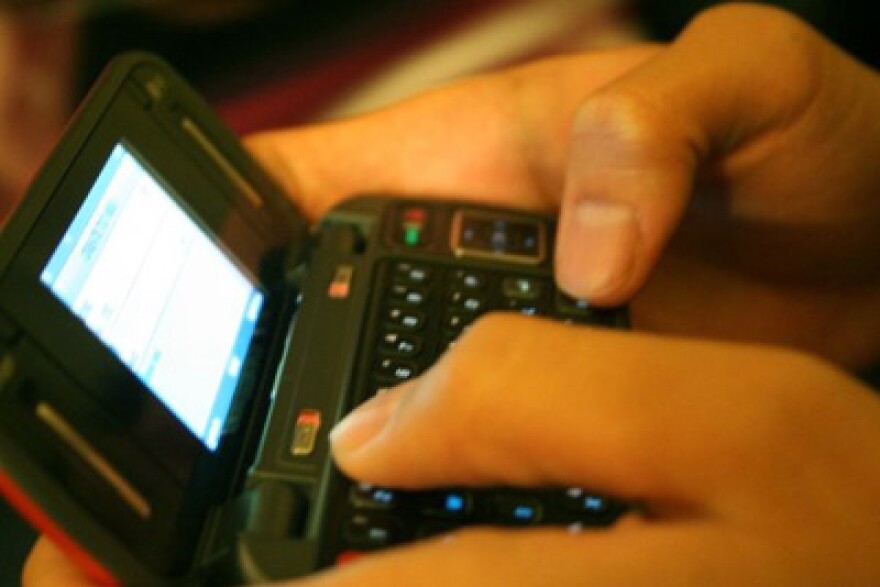"Sexting," the act of sending racy messages or photos using a mobile phone, isn't a sign of moral turpitude, according to researchers from the University of Michigan's School of Public Health. They say the act is just a part of normal dating for young people.
Researchers surveyed respondents for their study, which will be published in an upcoming edition of the Journal of Adolescent Health.
From a UM press release:
University of Michigan researchers looked at the sexting behavior of 3,447 men and women ages 18-24 and found that while sexting is very common, sexting isn't associated with sexually risky behaviors or with psychological problems. The findings contradict the public perception of sexting, which is often portrayed in the media and elsewhere as unsavory, deviant or even criminal behavior, said Jose Bauermeister, an assistant professor at the U-M School of Public Health and co-principal investigator of the study.
Previous research has been done to identify who is "sexting," but the UM researchers say this "is the first known study to connect sexting with a behavioral outcome."
They found nearly half of the respondents said they took part in sexting, and most people who said they received "sexts" also said they sent them. The results, researchers say, suggests sexting likely happens between romantic partners.
And it's not just young people, more older adults are participating as well.
From Sarah Gates of the Huffington Post:
A recent Harris Interactive poll found that one in five Americans sext or share racy text messages with others on their smartphones. Sponsored by Lookout Mobile Security, the results of the 2,097 adults surveyed focused on a particular rising trend -- adult sexting. While the convention may be popular among text-savvy teens, sexting has become more prevalent among older generations, as one in 10 baby boomers surveyed admitted to sending or receiving explicit photos.
While sexting might be risqué, it's also risky (to which Anthony Wiener, Kwame Kilpatrick and several other politicians can attest).
No doubt, there are, or there will soon be, privacy apps for the behavior.



